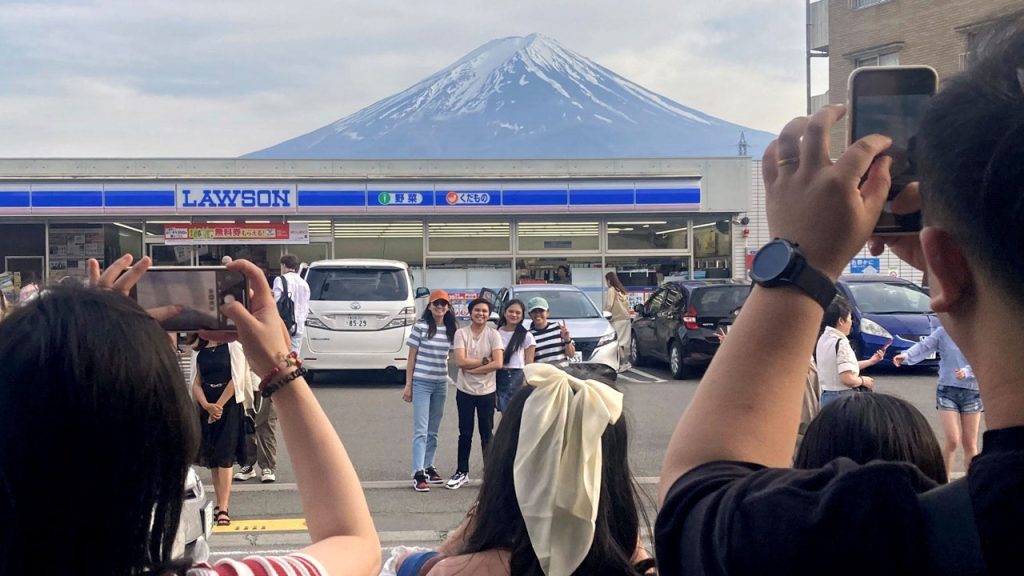The town of Fujikawaguchiko, known for its scenic views of Mount Fuji, has begun constructing a black screen to block the view of the mountain due to misbehaving foreign tourists. Concerns include littering, ignoring traffic laws, and trespassing on private property. While 80% of a local cafe owner’s customers are foreign visitors, complaints from locals about overcrowding and disruptive behavior have prompted the town to take action. The black screen, when completed in mid-May, will be 8.2 feet high and 65.6 feet long and will almost completely block the view of Mount Fuji.
Tourism in Japan has surged since the pandemic border restrictions were lifted, resulting in more than 25 million visitors last year and an expected increase to almost 32 million this year. While the influx of tourists has helped the industry, it has also led to complaints from residents in popular tourist destinations such as Kyoto and Kamakura. In an effort to address concerns about overcrowding, Venice recently launched a pilot program to charge day-trippers an entry fee. Locals in Fujikawaguchiko are uncertain how to deal with the situation, as the town has tried various measures such as hiring a security guard and posting signs, all of which have proven ineffective.
Despite the need to address the negative impacts of tourism on local communities, some visitors feel that the black screen in Fujikawaguchiko is an overreaction. Anthony Hok, a tourist from France, suggested setting up road barriers for safety instead of blocking views for photos. However, Helen Pull from the U.K. empathized with the local concerns about overcrowding and the impact of social media on tourism. She noted that the power of platforms like Instagram has led to an increase in tourist traffic, even when Mount Fuji is not visible.
Local business owners like Michie Motomochi and Yoshihiko Ogawa are struggling to cope with the crowds and disruptive behavior. Motomochi, who owns a cafe in the area, cannot envision how the black screen will help control the flow of people along the narrow pedestrian walkway and road. Ogawa, who runs a rice shop, has experienced increased overcrowding in recent months, making it difficult for him to move his car in and out of the garage. Both business owners are unsure how to address the issue and adapt to the changing tourism landscape.
While tourism has brought economic benefits to Japan, it has also highlighted the need for sustainable and responsible tourism practices to protect the well-being of local residents and businesses. With the ongoing challenges posed by the influx of visitors, communities like Fujikawaguchiko will need to find effective solutions to balance the economic benefits of tourism with the preservation of their cultural and environmental heritage. As the debate over tourism in Japan continues, local officials and residents will need to work together to devise strategies that promote a more harmonious relationship between tourists and the communities they visit.


